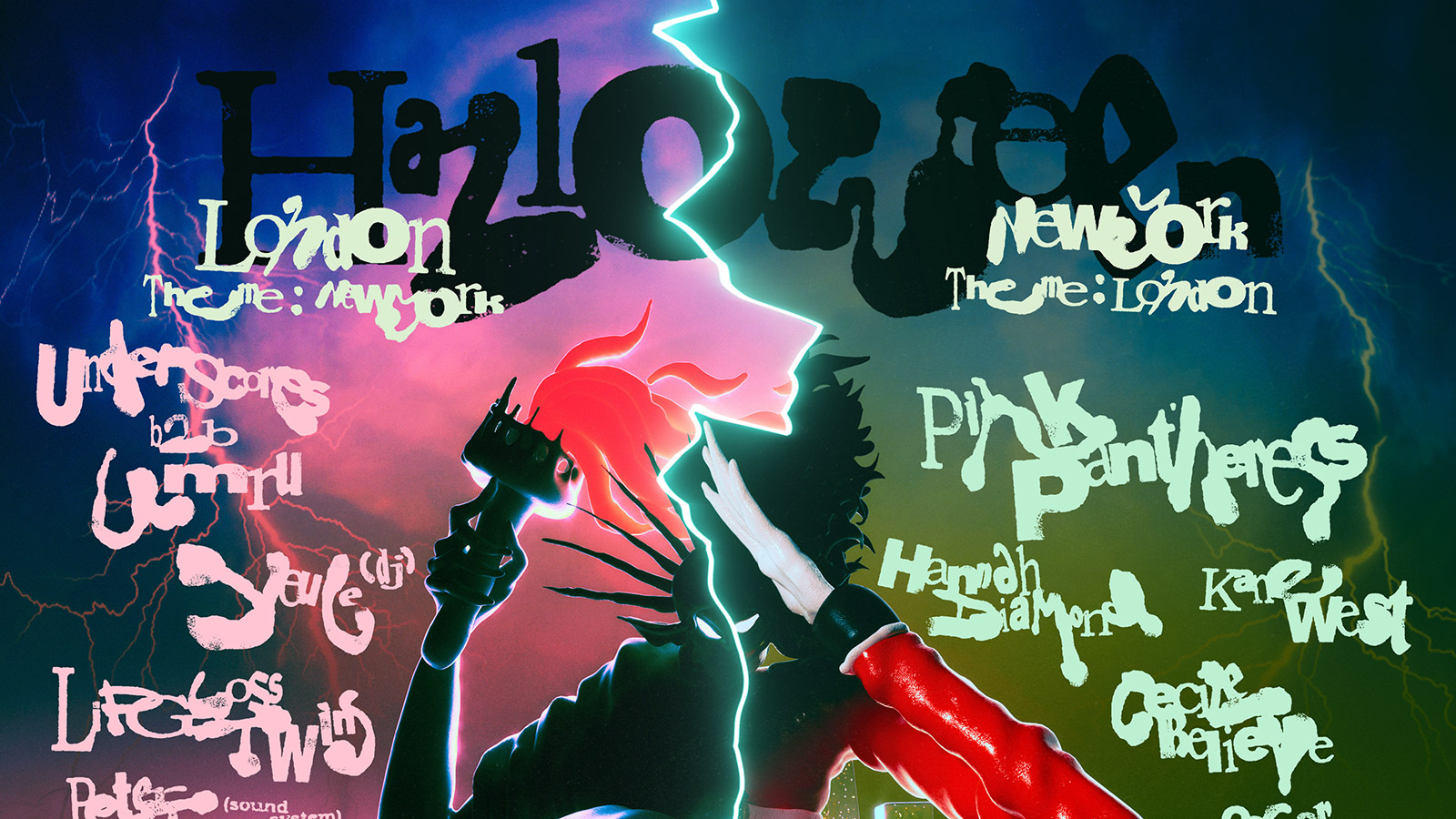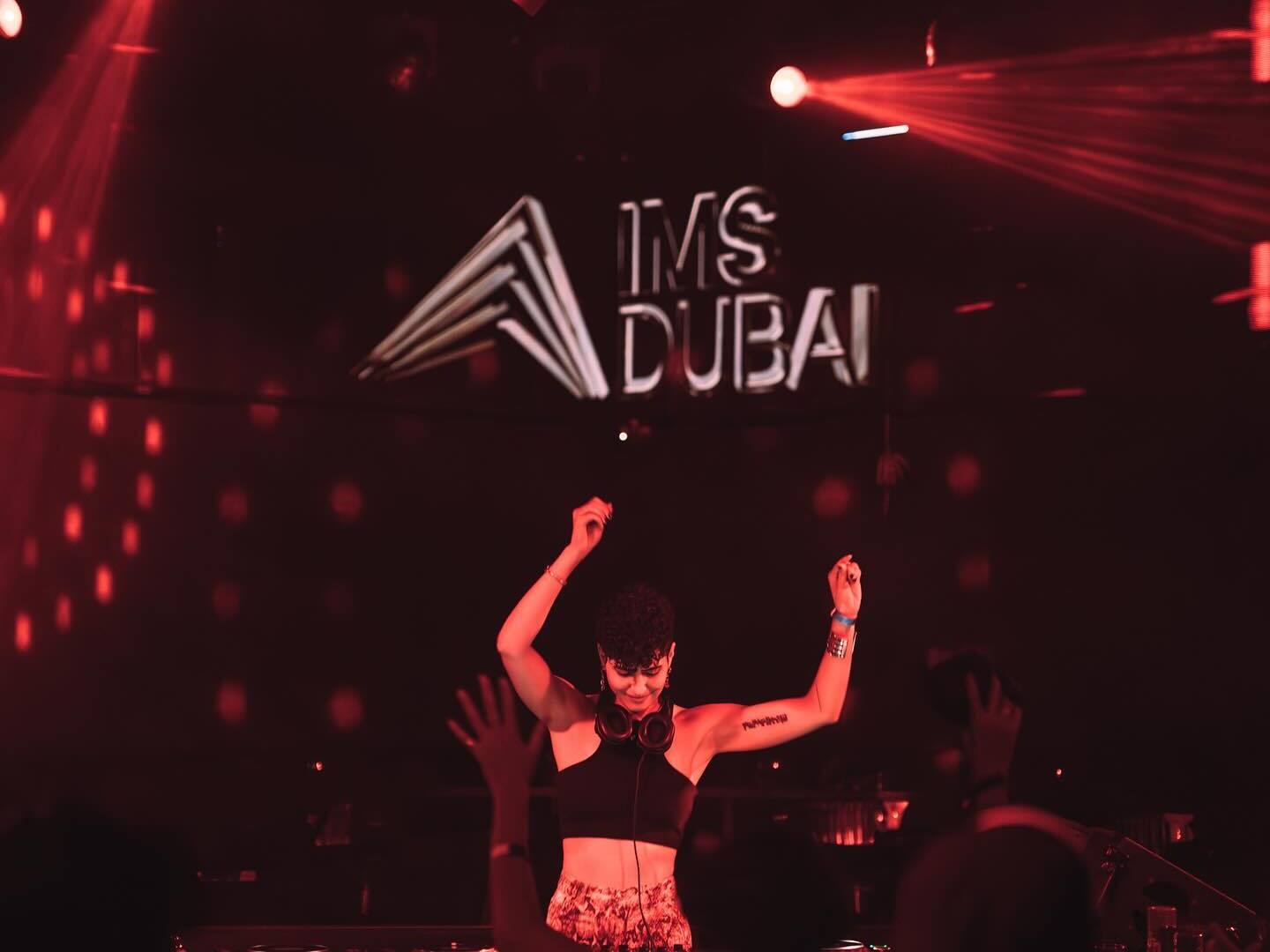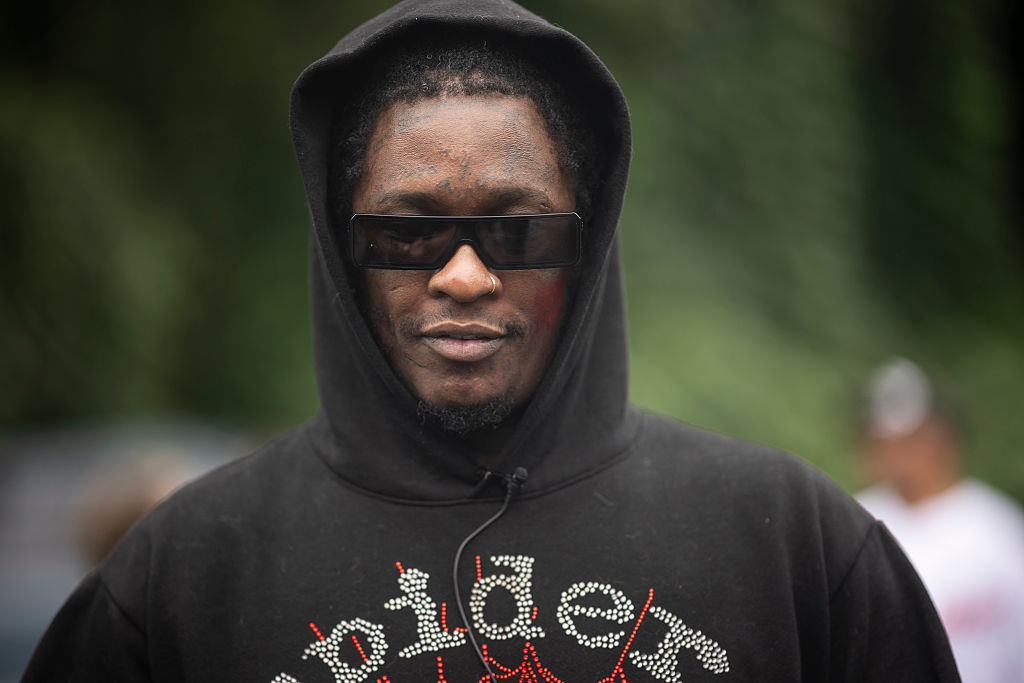

By the time I find Julia Wolf in the green room at Camden's KOKO, the chaos of load-in and an early fan queue is already underway.
She's calm, grounded and a quiet contrast to the storm brewing outside, just ahead of her support slot with PVRIS. The next evening, she’d be headlining her first London show at Oslo, already sold out.
In a string of milestones, the 33-year-old has had viral hit with “In My Room” and carried support slots with Artemas, Halsey, and PVRIS, and a newly announced 13-date UK and Europe headline tour for winter. All of it has arrived in the wake of her sophomore album Pressure, a record that’s both heavier and more fragile than anything she’s released before.
There’s a kind of quiet contradiction at the core of Wolf’s world: introverted but confrontational within her music. “I’m not much of a city girl,” Julia Wolf admits, seated backstage at KOKO. “But I think at the time, being in that environment really harvested a hunger in me to get out of it.” Growing up in a suburban pocket of Long Island, Wolf began performing in restaurants before moving on to open mic nights across Queens. “It felt kind of impossible to do music,” she says. “But at the same time, that’s what made me work harder for it.”
Her first experiences in songwriting came a bit by force and a bit with love. “My high school music teacher gave me an ultimatum,” she recalls. “If I wanted to perform in the senior talent show, it had to be an original song. At the time, I found that mortifying. I was extremely shy.” But she did it. That experience would eventually lead her to study at SUNY Purchase in Westchester. “I didn’t really find my people there,” she says, “but after I graduated, I was doing one of those open mic nights and a producer reached out to me because I had posted something, and that’s kind of where I started.”
Get the Best Fit take on the week in music direct to your inbox every Friday
Those early years in Queens, NY were formative, both creatively and emotionally. She started small; restaurant gigs, open mics, casual clips online, and built a slow, steady momentum. “It took me so many years to get to this point,” she says. “But I think that slow build grounded me.”
Even back then, she was fully in her emo era. “I was the girl who was super emo and had all the printouts of my favourite bands covering my walls,” she laughs. “My first concert was Avril Lavigne. I wore ties to school every single day in like, fourth and fifth grade. I knew then I wanted to be onstage like her, even if it felt impossible at the time.”
Wolf’s world on her latest record is evidently built with intention; it’s a collage of obsessions that shaped her throughout her most formative years. In conversation, it’s clear the things she once clung to still linger just beneath the surface, such as horror films, astrology books, Twilight midnight premieres. But sonically, the album itself highlights elements of 2000s emo punk, atmospheric pop, and sad girl softness.
“I think I just wanted the album to be a culmination of all these things that I love,” she tells me. “Just to show that I’m not just this one thing, you know?” If fans started calling for more tracks like “In My Room,” the viral hit that first widened her audience, Wolf didn’t listen. “When I start sensing that I’m getting put into a certain box, I immediately get this itch of I need to jump ship and do something else.”

Her refusal to be pinned down to one specific genre is reflected in the references that surround it. The singer grew up in a household where she was surrounded by spooky knickknacks and a mother who was obsessed with all things paranormal and spirituality. The brooding aesthetics of her brand are more than just for show, as she talks about holding onto pieces of pop culture. I notice that these references to early 2000s movies and music are more than just nostalgic for her, but rather a foundational aspect that shapes how she sees the world and storytells.
These days, she’s carving out her own grounding rituals, a little cinnamon blown through the door at the start of every month (“I swear it works”), crystals from fans at shows, and an Etsy witch she swears by. There’s a quiet kind of spirituality baked into her day-to-day. “I’m such a believer in all those things,” she says.
In the afterglow of “In My Room”’s TikTok virality, the track brought her to new audiences. After the song took off, the natural next step was to make a record, but what came instead was a plate of self-doubt. “I started getting a lot of people saying, ‘Oh, we want more In My Room,’” she says. “But to me, I don’t believe in that. It already exists. So I just try to make what feels authentic in the moment, because that’s how you get songs that resonate.”
Authenticity, in this case, exhibited elements of an emotional exorcism, with Pressure being drenched in her most vulnerable thoughts and insecurities. Julia reflects on her inner struggles with body comparison, anxiety, and the looming yet relatable sense of never feeling enough. “For the first time, my insecurities just overwhelmingly took over my brain,” she admits, describing how moving to LA in hopes of making it in music amplified every internal pressure. “I’d leave the house and feel like I was in a sea of people who looked perfect. And I just didn’t.”
We land on the importance of safety in the studio during our conversation – especially for women. I mention how many female artists stay loyal to a trusted collaborator, like Olivia Rodrigo’s ongoing partnership with Dan Nigro. For Julia, that person is Scro. “So much of the time in this industry, you’re explaining yourself,” she tells me. “With Scro, I don’t have to. He just gets it. I can say the craziest stuff and not feel judged.” The studio, once an intimidating space, became her sanctuary, a place where she could let go, be messy, and actually make something worthwhile and vulnerable.
Across the record’s tracklist, Wolf leans into emotional extremes. There’s “Loser,” where self-consciousness becomes its own kind of scream; “Pearl,” full of Scorpio bitten lyrics and feminine rage; and “Jennifer’s Body,” a dark-pop reclamation named after the cult classic film. “I'm not the biggest talker in general,” she tells me. “So songwriting is how I say all the embarrassing thoughts in my head out loud, in the hopes someone else gets it.” Pressure became a document of resistance against the noise in her head. Written during a period of intense self-doubt and body comparison, Wolf channels the uniquely brutal undercurrent of her move to Los Angeles, highlighting the city’s fixation on image.
There’s a deliberate emotional arc to the tracklist. Rather than chasing virality, Pressure moves in the opposite direction, toward clarity, confrontation, and the kind of self-expression that cannot be manufactured by the industry.
Touring has been a slow burn for Wolf, a steady build between open mic nights in her hometown to support slots for pop-alternative artists like Halsey and PVRIS. Now, the songstress, even without her name on the marquee, fans show up early to KOKO, armed with signs, crystals, and personal stories to share with their favorite artist.
“There’s something insane about seeing people who know the words when you’re not even the headliner,” she says. “That will never not floor me.” The gifts of crystal sets and Twilight-coded trinkets are more than just tokens, but represent proof of connection between Wolf and her audience, of people who simply just get her.
Julia’s reserved energy thrives on routine and retreat. “I’m not a big talker in real life,” she tells me, laughing softly. “So the one-on-one stuff, hearing how people relate to the music, it kind of puts the life back in me.” Her live shows allow the noise of the music industry and chaos of overthinking in her bedroom at home to subside for a bit.

The concept behind Pressure is lived rather than abstract. As we speak about the realities of navigating the music industry, I bring up how so many artists are pushed aside by the time they hit 35, as if their relevance has an expiration date. Julia, now 30, nods in agreement. “The insecurities, man,” she says, laughing but not really joking. “They really come out in a place like LA.” We talk about how aging in music feels like racing a silent clock, especially in an industry that often sidelines women as they grow into themselves.
Even though Pressure is her second album and she’s selling out headline shows, the shadow of time still lingers. “So much of it is born from the pressure of just taking so long to gain any traction,” she tells me. We talk about how exhausting it can be to break through in an industry that still feels like a boys’ club. “People who used to say no are now knocking on our door,” she notes, a quiet defiance in her voice.
Behind the visuals and music videos is a tight-knit team. As a self-proclaimed introvert, she thrives in close-knit environments where trust is the foundation. This same intuition shows up in the way Wolf approaches her visuals. While she admits she’s not always comfortable being on camera, she’s deeply involved in shaping the tone and storytelling behind each video and image. Nothing is done just for show; it has to mean something. “I struggle a little bit with being on camera,” she shares, “so it’s really about finding ways to make it feel like me.”
As she prepares to embark on a UK and EU tour, from selling out Oslo Hackney to stepping onto bigger stages, there is a quiet force that shows how she is not chasing virality or making an effort to blend in with the industry noise. Instead, Wolf is constructing something slower and lasting, a career built on reclamation and storytelling, similar to the concept behind the Pressure album.
Her journey is coming full circle, too. In a few weeks, Julia will perform two sold-out, intimate shows at the iconic Twilight Swan House, a surreal milestone pulled straight from her teenage imagination for the artist whose Bella-esque inspired aesthetic has long shaped her work.
She isn’t chasing a spotlight, but is approaching her career deliberately and sustainably, rooted in a confident sense of self. Rather than screaming for attention, the musician is whispering with purpose, and in a world of manufactured noise, people are leaning in to listen.

 1 month ago
13
1 month ago
13


















 English (US) ·
English (US) ·